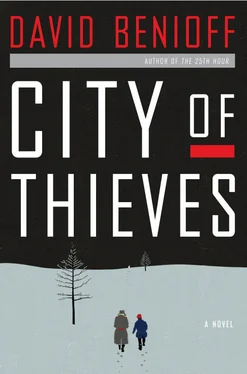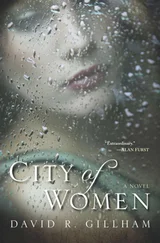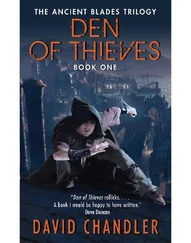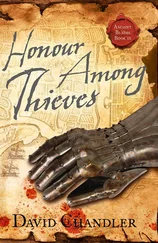“What?”
“The knife. Slashing,” he said, slashing the air with the steel blade, “is better than stabbing. Harder to block. Go for the throat, and if that’s not working, go for the eyes or the belly. Thigh’s good, too, big veins in the thighs.” All this instruction was accompanied by vigorous demonstration. “And never stop,” he said, dancing closer, the steel flashing, “never let up; keep the knife moving, keep him on the defensive.”
He sheathed the blade and tossed it to me.
“Keep it. You’ll need it.”
I stared at Kolya, who shrugged. All of this was too strange to understand so there was no point straining the mind, trying to sort out where we stood. I got back on one knee and strapped the knife to my ankle again.
The colonel had moved to the French windows, where he watched yesterday’s snow blowing across the frozen Neva.
“Your father was the poet.”
“Yes,” I admitted, standing straight and staring at the back of the colonel’s head. No one outside my family had mentioned my father in four years. I mean this literally. Not a word.
“He could write. What happened was… unfortunate.”
What could I say to that? I stared at my boots and knew that Kolya was squinting at me, trying to figure out which unfortunate poet sired me.
“Neither of you has eaten today,” said the colonel, not asking a question. “Black tea and toast, how does that sound? Maybe we can find some fish soup somewhere. Borya!”
An aide stepped into the sunroom, a pencil tucked behind his ear.
“Get these boys some breakfast.”
Borya nodded and disappeared as quickly as he’d appeared.
Fish soup. I hadn’t had fish soup since summer. The idea of it was wild and exotic, like a naked girl on a Pacific island.
“Come over here,” said the colonel. He opened one of the French doors and stepped into the cold. Kolya and I followed him along a gravel path that led through a frost-blasted garden, down to the banks of the river.
A girl in a fox fur coat skated on the Neva. In a normal winter you’d see hundreds of girls skating on a weekend afternoon, but this wasn’t a normal winter. The ice was solid and had been for weeks, but who had the strength for figure eights? Standing on the frozen mud at the river’s edge, Kolya and I stared at her the way you’d stare at a monkey riding a unicycle down the street. She was freakishly lovely, her dark hair parted in the middle and tied up in a loose bun, her wind-whipped cheeks flushed and full and healthy. It took me a few seconds to realize why she looked so strange, and then it was obvious—even at a distance you could tell that the girl was well fed. There was nothing pinched and desperate about her face. She had an athlete’s casual grace; her pirouettes were tight and fast; she never got winded. Her thighs must have been magnificent—long, pale, and strong—and I could feel my prick hardening for the first time in days.
“She’s getting married next Friday,” said the colonel. “A piece of meat she’s marrying, I say, but all right. He’s a Party man, he can afford her.”
“That’s your daughter?” asked Kolya.
The colonel grinned, his white teeth splitting his brawler’s face.
“You don’t think she looks like me? No, no, she got lucky there. She got her mother’s face and her father’s temper—this one will conquer the world.”
Only then did I realize that the colonel’s teeth were false, a bridge that seemed to encompass the entire upper row. And I knew, suddenly but surely, that the man had been tortured. They had brought him in during one purge or another, called him a Trotskyite or a White or a Fascist sympathizer, pried the teeth from his mouth, and beaten him till his eyes bled, till he pissed blood and shat blood, till the order came from whatever Moscow office: we have rehabilitated the man, let him alone now, he is one of us again.
I could picture it because I had pictured it often, whenever I wondered about my father’s last days. He had the misfortune of being a Jew and a poet and mildly famous, friends once with Mayakovsky and Mandelstam, bitter enemies with Obranovich and the others he considered tongues of the bureaucracy, the slingers of revolutionary verse who labeled my father an agitator and a parasite because he wrote about the Leningrad underworld, though— officially—there was no Leningrad underworld. More than this, he had the temerity to title his book Piter, the city’s nickname, the name every native used, but banned from all Soviet text because “Saint Petersburg” was a czar’s arrogance, named for the old tyrant’s patron saint.
One summer afternoon in 1937 they took my father from the offices of the literary magazine where he worked. They never gave him back. The call from the Moscow office never came for him; rehabilitation was not an option. An intelligence officer might hold future value for the state, but a decadent poet did not. He might have died in the Crosses or in Siberia or somewhere in between, we never learned. If he was buried, there is no marker; if he was burned, there is no urn.
For a long time I was angry with my father for writing such dangerous words; it seemed stupid that a book was more important than sticking around and slapping the back of my head when I picked my nose. But later I decided he hadn’t chosen to insult the Party, not consciously, not the way Mandelstam had (Mandelstam with his crazy bravery, writing that Stalin had fat fingers like slugs, a mustache like two cockroaches). My father didn’t know that Piter was dangerous until the official reviews were written. He thought he was writing a book five hundred people would read, and maybe he was right, but at least one of those five hundred denounced him and that was that.
The colonel had survived, though, and looking at him I wondered if he found it strange that he had been so close to the shark’s jaws and somehow fought his way back to shore, that he who had waited for another’s mercy could now decide for himself whether to grant it. He didn’t seem troubled at the moment; he watched his daughter skate, he clapped his busted-knuckled hands as she spun.
“So, the wedding is Friday. Even now, even in the middle of all of this—” said the colonel, gesturing with his hands to indicate Leningrad, the famine, the war, “—she wants a real wedding, a proper wedding. This is good, life must continue, we’re fighting barbarians but we must remain human, Russian. So we will have music, dancing… a cake.”
He looked at us each in turn as if there were something momentous about the word cake and he needed us both to understand.
“This is the tradition, says my wife, we need a cake. It is terrible luck, a wedding with no cake. Now, I’ve been fighting all my life against these peasant superstitions, the priests used them to keep people stupid and afraid, but my wife… she wants the cake. Fine, fine, make the cake. For months she’s been hoarding her sugar, her honey, flour, all the rest.”
I thought about this, the sacks of sugar, the jars of honey, the flour that must have been real flour, not moldy salvage from a torpedoed barge. Half the Kirov could probably survive two weeks on her batter alone.
“She has everything she needs, all except the eggs.” Again the portentous look. “Eggs,” said the colonel, “are hard to find.”
For several seconds we all stood silently, watching the colonel’s daughter twirl.
“The fleet might have some,” said Kolya.
“No. They don’t.”
“They have tinned beef. I traded a pack of playing cards for some tinned beef from one of the sailors—”
“They don’t have eggs.”
I don’t think I’m stupid, but it was taking me a very long time to understand what the colonel was asking, and a longer time to fire up my courage to ask him.
Читать дальше












